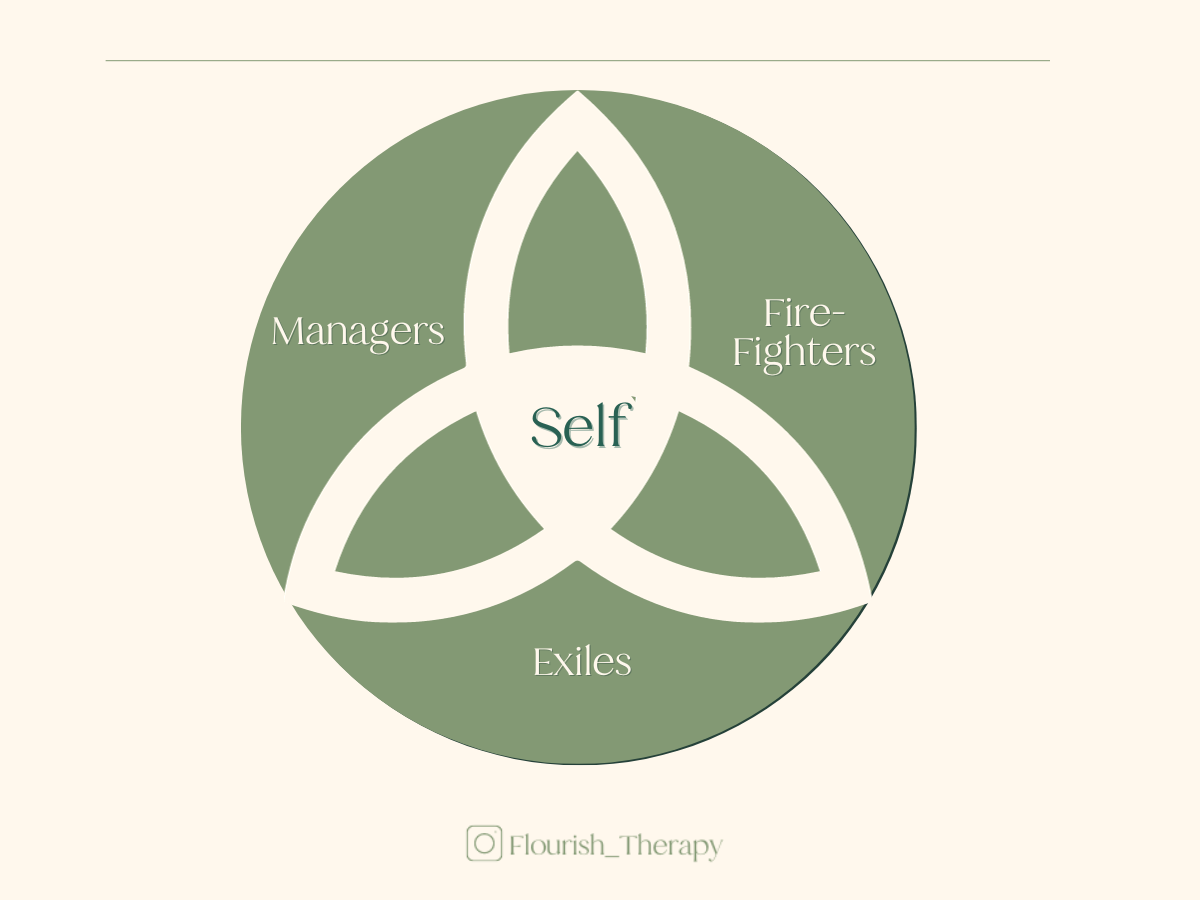IFS is a modality used inside and outside of therapy that facilitates the strengthening of relationships between the parts within your internal system. It is non-pathologizing, and while it recognizes the impact of burdened parts can be harmful, it reminds us the intention behind the part is somehow for your good.
BASIC MODEL:
It is the nature of the mind to be subdivided into an indeterminate number of sub-personalities or parts. Everyone has a Self, and the Self can and should lead the individual’s internal system. The non-extreme intention of each part is something positive for the individual. There are no “bad” parts, and the goal of therapy is not to eliminate parts but instead to help them find their non-extreme roles.
There are 3 entities:
1- Self
2- Protective Parts (Managers + Fire-fighters)
3- Vulnerable Parts (Exiles)
Self: Your truest self, your essence, your core that is untouched or changed by the stressors or traumas of life.
Managers: Proactive, protective parts that attempt to maintain control in your life. They aim to prevent you from having to feel any vulnerable parts. These could be judging, controlling, shaming, researching, perfectionist, preparing, critical parts.
Fire-fighters: Reactive, protective parts that attempt to gain control back after vulnerable parts have been touched. They try to put out the “fire” of your pain. These could be over-working/exercise/eating/social media/gaming/sexual parts, as well as addictions, substance abuse, self-harm, violent, distracting and dissociative parts.
Exiles: Vulnerable parts that hold the wounds of your story such as terror, shame, unworthiness, fear, grief, anger, abandonment. They have been “exiled” by your system in an attempt to shield you from their pain.
“IFS is based on the idea that healing is possible at any age, and at any stage in life.” -IFS Founder, Richard Schwartz @ifsinstitute
